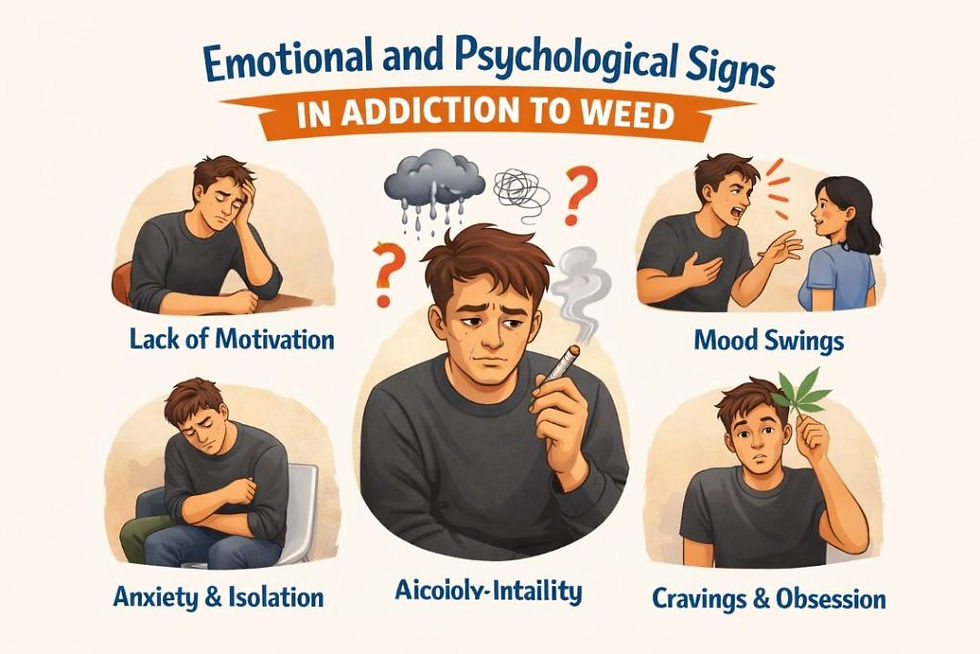CBT for Mental Health Stigma: Break Barriers to Treatment
- Felicia Parris

- May 6, 2025
- 3 min read
Mental health is just as important as physical health, yet millions of people hesitate to seek help due to stigma, fear, or misinformation. In the United States, nearly one in five adults experiences a mental health condition each year, but many never receive the support they need. At DeLand Treatment Solutions, we believe it’s time to break the silence, challenge stereotypes, and make mental health care accessible and stigma-free for everyone.
Let’s explore the impact of mental health stigma, how it creates barriers to treatment, and what we can do to foster a more supportive and informed society.

What is Mental Health Stigma?
Mental health stigma refers to negative attitudes, beliefs, and behaviors toward people living with mental health conditions. It can be external (from others) or internalized (from within the individual), and it often stems from misunderstanding, fear, or cultural misconceptions.
Common stigmatizing ideas include:
“Mental illness is a sign of weakness.”
“People with mental health issues are dangerous or unstable.”
“You just need to snap out of it.”
“Therapy is only for ‘crazy’ people.”
These harmful stereotypes can prevent individuals from acknowledging their struggles, seeking help, or continuing treatment.
The Impact of Mental Health Stigma
Stigma can lead to serious consequences for those living with mental health conditions, including:
1. Delayed or Avoided Treatment
Many individuals delay treatment for years due to fear of judgment, embarrassment, or being labeled. This delay can cause symptoms to worsen and reduce the effectiveness of interventions.
2. Isolation and Loneliness
Stigma often causes people to withdraw from friends, family, or social settings. This isolation not only intensifies symptoms but also removes valuable support systems.
3. Employment and Housing Discrimination
Some individuals may face discrimination at work or when seeking housing due to their mental health status, making it harder to achieve stability and independence.
4. Reduced Self-Esteem
Internalized stigma—believing the negative perceptions about oneself—can lead to shame, guilt, and a lack of self-worth, which further hinders recovery.
Breaking Down the Barriers
The good news is that stigma can be challenged, changed, and ultimately eliminated. Here’s how we can break down the barriers to treatment:
1. Normalize Mental Health Conversations
Talking openly about mental health—just like we do with physical health—can reduce shame and create a culture of acceptance. Whether it's through social media, community events, or personal conversations, every discussion helps.
2. Educate the Public
Knowledge is power. Increasing awareness about mental health conditions, their causes, and treatment options helps dispel myths and promote understanding.
3. Highlight Real Stories
When individuals share their personal experiences with mental health and recovery, it humanizes the issue and encourages others to seek help without fear.
4. Encourage Early Intervention
Promoting early screenings, therapy, and open communication—especially among youth—can prevent long-term suffering and normalize the idea that mental health care is proactive, not reactive.
How DeLand Treatment Solutions Is Leading the Way
At DeLand Treatment Solutions, we are committed to erasing the stigma surrounding mental health. Our compassionate team of licensed professionals provides comprehensive care that prioritizes
respect, dignity, and education.
Our services include:
Anxiety and depression treatment
Dual diagnosis care
Medication management and psychiatric care
We create a safe, inclusive environment where clients feel empowered to seek help without judgment.
Take the First Step Toward Healing
Breaking the stigma starts with each of us. If you or a loved one is struggling with mental health challenges, know that seeking help is a sign of strength, not weakness.
Contact us at (386) 866-8689 today or visit DeLand Treatment Solutions to learn more about how we can support your mental wellness journey.



Comments